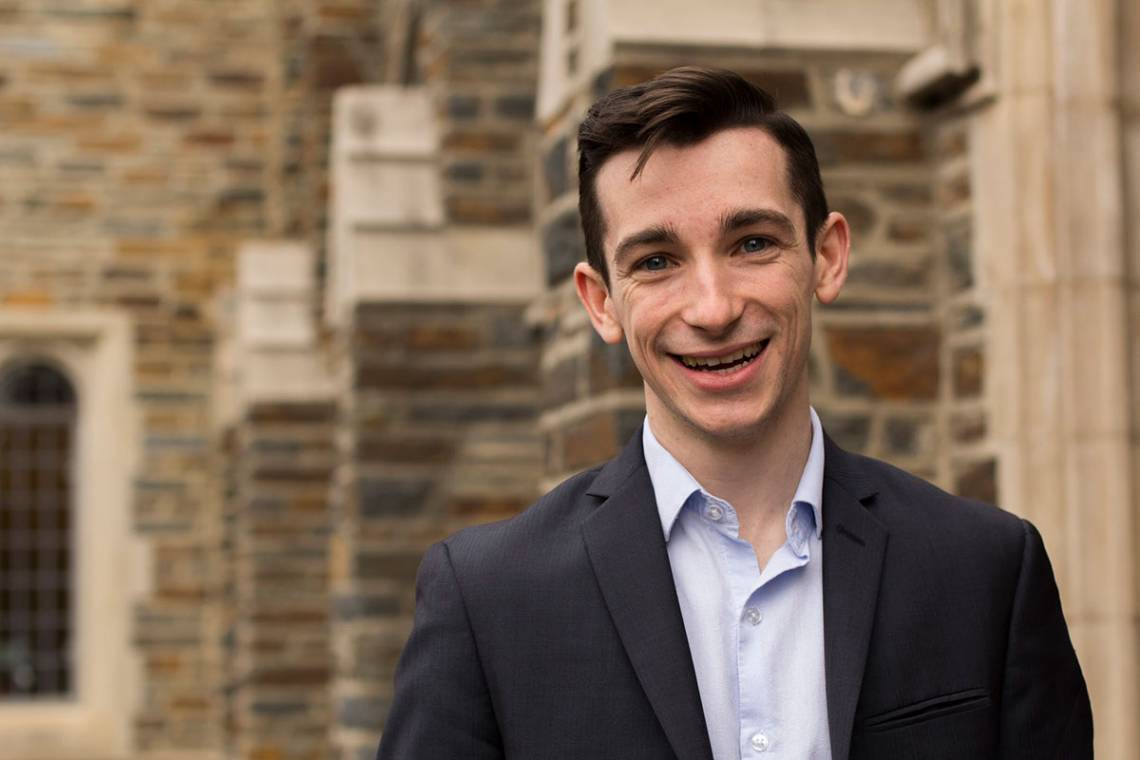Class of 2019: Using Math to Fight Gerrymandering
Luke Farrell's undergraduate research took him to the US Supreme Court

Luke Farrell, a senior majoring in computer science and neuroscience, reflects on his experience with the Bass Connections project team Gerrymandering and the Extent of Democracy in America. On March 26, he traveled to the U.S. Supreme Court to hear his team’s research cited in oral arguments and documents in Rucho v. Common Cause, a case on gerrymandering in North Carolina.
The opportunity to work on a project that is both deeply technical and politically relevant at the highest level has been a once in a lifetime experience.
To learn about the abstract mathematics from experts like Professor Jonathan Mattingly and then go to the Supreme Court and see the Justices appreciate and cite research our team has dealt with was amazing. That moment made it clear to me that data and democracy are inextricably tied in our collective future, and that I want to work at their intersection in my own future.
Bass Connections is all about research that you can see and feel and uniquely contribute to. The questions we seek answers to have vast implications, and Bass Connections brings together amazing interdisciplinary teams uniquely equipped to tackle them head on.

There are just too many problems to work on within our seemingly narrow domain of quantifying gerrymandering. Every team is tackling an amazing and essential question, and even still, there is so much left unexplored. It can be challenging to keep your head down and focus on one problem at a time, but Bass Connections gives you the opportunity to collaborate with many other researchers so the experience is always exciting.
After being inspired by our experience at the Supreme Court, Jake Shulman, another senior on the project, and I co-authored a thesis in Computer Science titled “Detecting Partisan Gerrymandering: Stratified Sampling the Space of Possible North Carolina Congressional Redistrictings.”